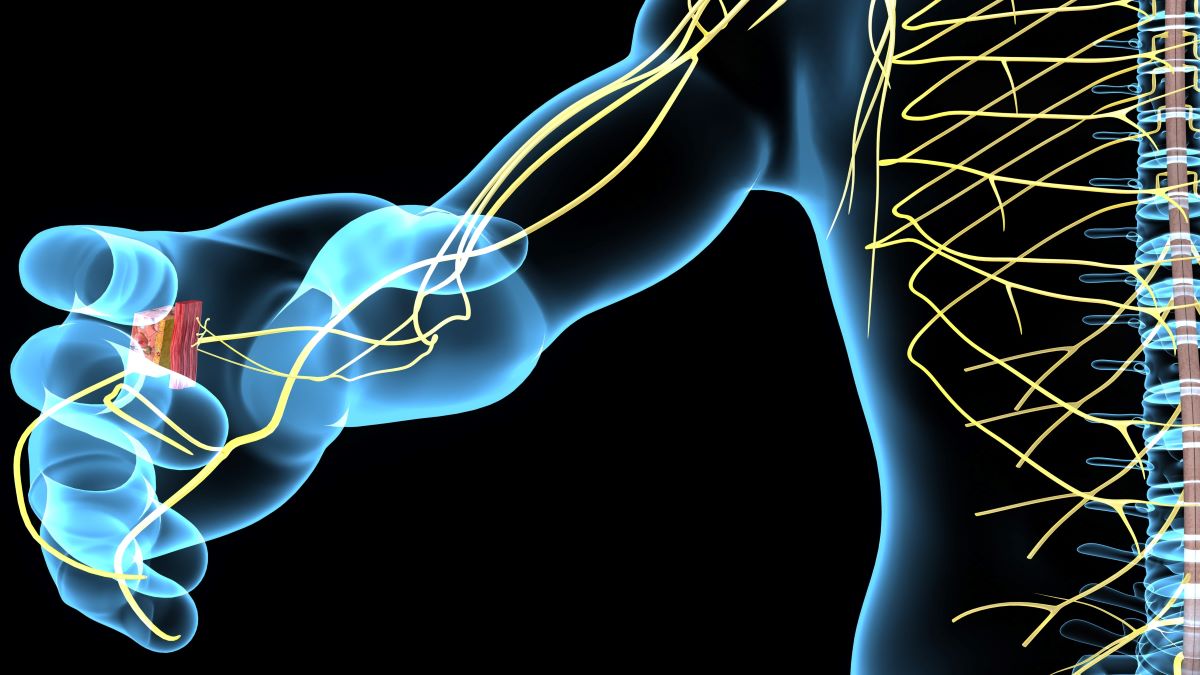Peripheral neuropathy refers to the condition that affects the peripheral nerves. The last is the nerves controlling sensations such as touch, pain, and temperature by transmitting information between the brain and spinal cord and every other part of the body. In addition, they are responsible for muscle strength. When one nerve is affected, the resulted condition is known as mononeuropathy. Alternatively, polyneuropathy is one in which more than one nerve is involved.
Peripheral nerve pain causes
Various causes may lead to nerve damage and the resulting peripheral nerve pain. Health conditions that can cause peripheral neuropathy include:
- Autoimmune diseases
- Diabetes
- Inherited disorders (such as Charcot-Marie-Tooth)
- Tumors
- Infections
- Bone marrow disorders
- Kidney disease
- Liver disease
- Connective tissue disorders
- Underactive thyroid gland (hypothyroidism)
Other causes of neuropathies include:
- alcoholism
- exposure to toxic substances (for example, arsenic)
- exposure to certain medicines (for example, chemotherapy)
- injury or pressure on the nerve
- vitamin deficiencies (including B-1, B-6, and B-12, vitamin E, and niacin)
It is worth mentioning that sometimes, the cause of peripheral nerve pain is idiopathic – of unknown origin.
Peripheral nerve pain symptoms
There is a specific function for every nerve in a human’s peripheral nervous system. Therefore, peripheral nerve pain symptoms vary depending on the nerves affected. General nerve classification includes:
- Sensory nerves. These nerves receive sensations like temperature, vibration, pain, or touch from the skin.
- Motor nerves. These nerves are responsible for muscle movements.
- Autonomic nerves. These nerves control blood pressure, perspiration, heart rate, digestion, and bladder function.
Peripheral nerve pain symptoms may include:
- Tingling, numbness, or prickling in feet or hands. These sensations can radiate upward into legs and arms.
- The pain of sharp, jabbing, throbbing, or burning character
- Excessive touch sensitivity
- Pain during activities that shouldn’t cause pain (for example, feet aching when you put weight on them or cover them with a blanket)
- Coordination problems and falling
- Muscle weakness
- Feel as if you have gloves or socks on when you don’t
- Paralysis (in cases when motor nerve function is impaired)
In addition, when autonomic nerves are affected, peripheral neuropathy signs may involve:
- Intolerance to heat
- Issues with sweating (either excessive sweating or inability to sweat)
- Problems with bowel, bladder, or digestive system functions
- Low blood pressure that causes dizziness or lightheadedness
When to see a doctor
It is essential to see the healthcare provider if you notice a sensation of tingling, weakness, or pain in your hands or feet. The earlier you receive diagnosis and treatment, the higher the likelihood of controlling the symptoms and preventing further peripheral nerve damage.
Peripheral nerve pain complications
If left untreated, peripheral neuropathy may result in complications, including:
- Burns and skin injuries due to inability to feel temperature or pain on affected body parts
- Infection due to unnoticed injuries
- Falls due to lack of balance
















Leave a Reply
You must be logged in to post a comment.